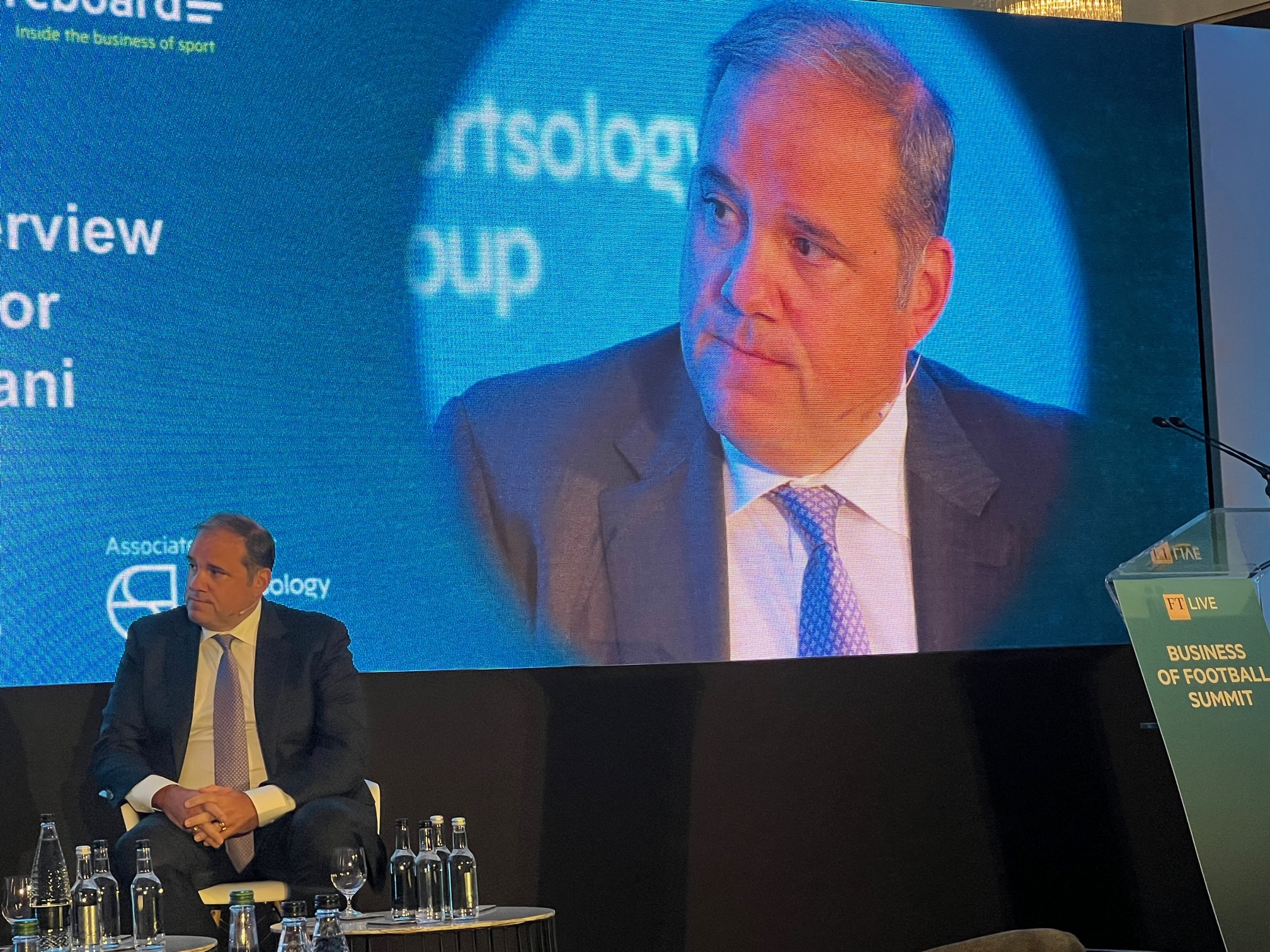By Paul Nicholson
March 3 – FIFA is set to discuss a change to the planned first group stages for the expanded 2026 World Cup – increasing groups from three to four nations – at its next Council meeting in Kigali, Rwanda, later this month.
The format to be discussed would see 12 groups of four teams rather than 18 groups of three, with an increase in the number of games overall from 80 to 104.
Speaking at the Financial Times Business of Football Summit in London, Concacaf president and FIFA vice president Victor Montagliani (pictured) questioned whether it is “right that you qualify for a World Cup and a third of teams go home after two games?”
Expanding to groups of four gives a minimum of three games and increases the opportunity for teams to make more of the World Cup in their home markets. It also gives host cities more matches and FIFA more inventory to commercialise and expansion opportunity in countries new to the global stage.
The excitement generated in Qatar 2022 when some groups went down to tense final games with qualifying changing in the final minutes of matches, is also seen as a compelling argument for increasing group sizes.
Montagliani did recognise there would need to be calendar consideration. “We do have to be responsible,” he said. “There was a footprint of days for 2014 and 2018 and we can’t go over that. We can’t have a three-month World Cup.”
The tournament would likely have to take place over a slightly longer period, but the thinking is that team preparation time can be cut down to accommodate that.
For Russia 2018 there was three weeks allowed for team training before the tournament kicked off. That was reduced to just a week before Qatar 2022. To accommodate the extra group games it is felt the preparation time could be somewhere between the two.
This would mean that players would not be in camp longer than they are currently.
Addressing the issue of increasing player workload Montagliani said that the argument there are “too many games only applies to the top 1% of players. That is where the issue is. Actually the average professional does not play that much. The idea that they are all overplaying is not the reality.”
Montagliani also pointed out, to an almost exclusively European football audience, that “the players, the fanbase is global. It is not just about UEFA. Football isn’t just European, it is not owned by anybody.”
The expanded 48-team 2026 World Cup has raised questions over environmental impact. “Effect on the environment is an active issue,” said Montagliani.
To mitigate that teams will play in zones – loosely, east, central and west – to cut down travel. “You can’t have teams travelling from New York to Los Angeles,” said Montagliani.
“Teams will play in pods. There will be a group playing out of Boston, Philadelphia and New York. Another one in Vancouver and Seattle and another in LA and San Francisco.”
Contact the writer of this story at moc.l1714187670labto1714187670ofdlr1714187670owedi1714187670sni@n1714187670osloh1714187670cin.l1714187670uap1714187670

